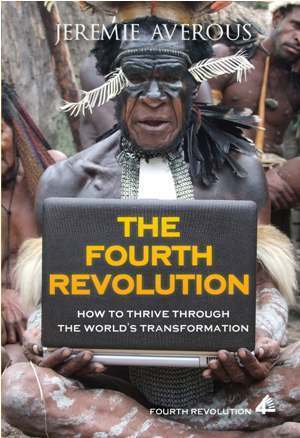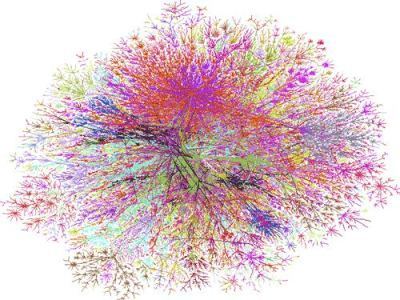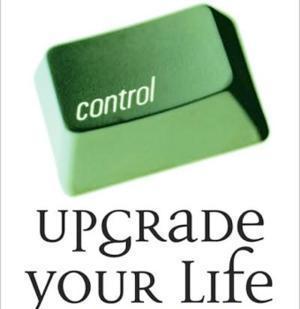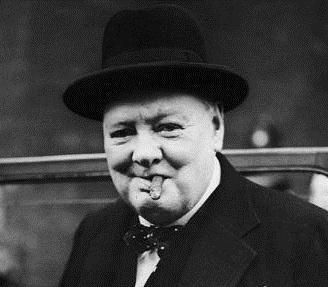Jeremie Averous's Blog, page 141
January 12, 2013
If at first an idea is not absurd, then there is no hope for it
Real creativity is quite a mystery – luckily probably, because if it had been fully exposed, life would probably be far less interesting.
And legions of people are still looking for “the great idea” – which would change the world, and/or make them rich, etc.

Jackson Pollock action painting… in action! An absurd idea?
The problem is always – how do you recognize if a new idea has potential? Experience shows again and again that you can’t. At least not rationally, for sure. Maybe emotionally – although countless inventors died believing alone they had had a great idea.
At least this well-known quote from Albert Einstein ”If at first an idea is not absurd, then there is no hope for it” (mentioned in the excellent book “the 3rd alternative” by Stephen Covey), gives us a clue, if a negative one.
Dismiss thus any idea that seems normal. Consider with interest all ideas that seem weird, out of place, absurd, impossible to understand, strange, out-worldly. All ideas that seem to put your worldview upside down.
That’s tough and that’s why probably so many good ideas don’t get recognized or only develop by chance.
Next time you meet a really absurd idea, give it a chance. Adopt it for a while. It might astonish you.

January 10, 2013
How a Team’s Consistent Time-Orientation is Key in Team Effectiveness
Our time-orientation (future, present or past) is somewhat part of our personality. To be effective, teams might need to be constituted by people that share similar time-orientation. In fact it might be one of the most important recruitment criteria.
Philip Zimbardo and John Boyd in “The Time Paradox: The New Psychology of Time that Will Change Your Life“, argue that we have quite different perspectives on time and they are quite stable through time.

How do your recruits fare on the Marshmallow test?
Present-oriented people tend to be hedonistic, and future oriented people tend to defer gratification (like in the famous marshmallow experiment: leave a child alone with a marshmallow for a few minutes explaining that if he/she does not eat the marshmallow he/she’ll get a second one – observe the reaction).
In “Strategy and the Fat Smoker: Doing What’s Obvious but not Easy“, David Maister argues that effective implementation of a strategy by a team can only happen if the team’s time-orientation is consistent. If the strategy is very much about making an effort or even a sacrifice to reach an improved condition, you’d better have around the table people that share the same preference for deferred gratification, i.e. that are strongly future-oriented.
I find increasingly that personal time-orientation is definitely a major criterion for hiring in particular for a startup – you want people that are ready to make the effort, forego gratification like time for themselves and with their families, to build something better in the future – you want future-oriented people.
In other occupations you might rather want present- or past-oriented people.
How do you know people’s time-orientation? Actually it is generally quite obvious from observing and listening to people. People that are present-oriented will need to spend a lot of time caring about themselves and will generally make sure they enjoy to the most their current situation. People that are future-oriented will live stoical lives and invest heavily for some distant future.
Look at your prospective hires’ time orientation to check it is fit with your preferences and what you want to achieve! I make it an ever increasing important criteria for recruiting fro my team!
Do you want to know your time orientation in a scientific way? Take Zimbardo’s Time Perspective Inventory and compare yourself to other people!

January 8, 2013
Unleash your creative energy through a daily routine of breathing and body exercise!
Following our blog post on “How we actually think with our bodies”, what is the daily routine you will put in place to unlock your creative potential, regain the dynamism you might be missing and make your decision-making sounder?

What exercise do you do to get creativity and focus?
Everybody will figure out what his/her won routine should be. Behold, I will share my current secret routine. It takes me 5 minutes every morning. 5 short and very worthwhile minutes that bring me incredible energy and positivity before starting the day.
I am just doing several times 3 yoga movements I learnt from Dominique Lonchant, a breathing yoga master in one of his workshops (his website is OnLineBreathing.com and he has also some books (in French) available). The first movements empty fully my lungs and the last movement fills them completely, creating a burst of energy. Then I do some active movements to get the heart starting a bit. That’s it!
In addition during the day I try more and more to do some conscious breathing from time to time to take some distance from the events.
Whatever your routine will be, you need to unlock your mind’s potential through some routine posture and body exercises. Find your way, it will change your life. When will you be starting?

January 5, 2013
How we actually think with our bodies
While Industrial Age wanted to split our intellect from our bodies, it becomes more and more obvious today that we think with our bodies.
What does that mean? It means that our posture influences our retention of information and our decision-making. That our level of bodily energy influences greatly our view of situations through our emotions.
Here is a great demo of this effect by Peter Lovatt, a professional dancer turned psychologist, in the following video. If you don’t want to watch it whole, watch for a few minutes after 14′ for the demonstration of posture on decision-making.
No, our decision-making will not be the same depending on our body posture, tension and ventilation. Our creativity might not be the same depending on our body fitness. Did you notice that most creative people and most visionary executives also exercise a lot?
Valeria Maltoni in this post on “Mind and Body” shares some of her strategies using the body at the start or in the course of her facilitated workshops to get people into the right mindset.
Think about it. How does your posture influence positively or negatively your thinking, creativity and decision-making? Please share your experiences!

December 22, 2012
10 Best Posts of the Fourth Revolution Blog in 2012
We are making a break for two weeks , taking time to discover New Zealand in a campervan with the family – probably very much disconnected from the internet! I hope you’ll enjoy the festive season and you’ll take time to recover energy for an exciting year 2013.

The Fourth Revolution Book cover
The most commented or visited blog posts of the year have been:
What would you do if you were not afraid?
When you most feel like giving up.. what should you do?
Kevin Kelly on the next 5,000 days of the web (VIDEO)
Social Product Creation: Quirky, the collaborative invention unleashed! (with VIDEO)
Leadership is about dealing with conflict
The 5 career things I did believe, but I don’t believe any more
The way you receive feedback tells more about you than the feedback itself
Crowdfunding is not charity, and it is not free!
Enjoy your holiday! We’ll be back on January 5th!

December 20, 2012
Economists fail because they can’t apprehend complexity
Economists notoriously fail to explain the world in which we live. And their forecasting capabilities are highly unreliable. Why is that? Our take is that there is a fundamental impossibility for economists to apprehend the real world’s complexity. And so, it is going to get even worse as the world complexity increases!

A complex system: an early representation of Internet
Economists try to fit the economy in simple rules. They do that at different scales: macro-economy; micro-economy; case studies. One of the major hypothesis is that of the rational individual, i.e. that individual’s decision making is driven by rational decisions based on improving one’s economical condition.
We know for a long time that it is a simplified view of people’s actual motivation. It has become clearer in the last few decades with the emergence of the concept of “leadership” (why would you want “leadership” in the economists’ world when compensation should be enough?). Repeated crisis have shown the limits of all rational econometric models – and that “Black Swan” events happen frequently – events that upend conventional thinking based on careful analysis of past statistical data.
What are economists good for then? Simply giving some comfort to politicians? Driving the economy in times of normality?
Economics is still a recent discipline. If it is to become really useful it needs to apprehend complexity – how complex systems work, how they can become unstable and unpredictable. And then only will economics be truly be able to take the central role in governance that it seeks for a long time.

December 18, 2012
How Economists can’t explain Collaboration
Economists are known not to agree on explanation of past events, and to be a disaster when it comes to predicting what will happen in the economy.
Among their feats, economists still can’t explain how Wikipedia, for example, works. As quoted by Alex Tabarrok in his post “Shared Creation”, they still can’t figure out what is the effect of such low transaction costs in the spontaneous assembly of people performing for free a seemingly so valuable service to Humankind.
 Because non monetary motivation is more important than any kind of economic exchange in this case, the usual tools of the economists based on the “economically rational individual” fail completely. And indeed – Wikipedia lives only through the voluntarily contributions of millions of people. Still, it is now an institution that is supported by many and has become so indispensable in our lives.
Because non monetary motivation is more important than any kind of economic exchange in this case, the usual tools of the economists based on the “economically rational individual” fail completely. And indeed – Wikipedia lives only through the voluntarily contributions of millions of people. Still, it is now an institution that is supported by many and has become so indispensable in our lives.
As Alex Tabarrok mentions, “Economists thought that Wikipedia couldn’t work because of problems of motivation but what turned out to matter most was not motivation but transaction costs. With 7 billion people and low transaction costs what other forms of shared creation become possible?”
That transaction costs are now zero changes completely the logic of the exchange of value. A lot of what we are doing during the day is not any more just motivated by economic rationality. It makes the reason why so many organizations and institutions exist completely obsolete. Will economists become also an extinct profession in the Fourth Revolution?

December 15, 2012
Urgent, Stop Doing What You Have Always Done!
“In today’s world, if you do what you have always done, you’ll get less than you’ve always gotten“. – Morris Shechtman

Upgrade Yourself!
I find that quote particularly inspiring when it comes to pushing us to change. Today with the Fourth Revolution, change is not an option, it is mandatory. Change your focus, stop expecting the Corporation to decide for you, change your mindset. You need to find out what you need to do, but for sure you need to change the way you view the world and what you’ve always done – or what your parents have always done.
When do you stop doing what you have always done?
More of similar mind boggling quotes on today’s workplace on Tina Cook’s site.

December 13, 2012
How Education Accreditation Impedes Change towards Excellence
One institution of the Late Industrial Age is university and, in general, education and training accreditation. National (governmental) or professional bodies decide what the education program should be and expect the university’s or the school’s program to be fully aligned.

Is your education accredited? By whom?
And behold those education institutions that would not fit in the mold! They take the risk of losing the right to use certain nationally and internationally recognized titles for their diplomas of achievements, and thus to lose the interest of prospective students.
Of course on one hand, accreditation guarantees a minimum quality. But on the other hand, what a formidable hurdle to educational experiments!
A university in Malaysia tried to implement a new, original education system with many advantages to prepare students to work life (as it included many work-related projects and close relationship with industry). Discussing with the university founder, he described how painful it had been to have to fit finally within a standard education framework determined by bureaucrats – for fear of losing the right to use the normal university grades and titles.
Accreditation is beneficial at the beginning when a profession first forms. Like any institution is soon impedes change and tries to defend itself against the external world. As everything becomes global, standardization of accreditation is another significant issue. The only remedy is to create a new education brand that will be stronger in terms of recognition than the conventional accredited grades and diplomas.
This new, strong brand of an education adapted to the Fourth Revolution will appear eventually. The format of delivery education will change, needs to change with the Fourth Revolution, online education, and the need to foster improved emotional intelligence in the new generations to come. Accreditation programs will slow this evolution – but like any institution will finally have to give way.

December 11, 2012
Real leaders prove themselves in times of crisis
It is easy to be a successful leader in times of growth and economic bounty. What actually proves leaders is how they act and lead in times of crisis.

Winston Churchill, a leader proven by the WWII crisis
Real leaders prove themselves in the midst of uncertainty, when the world seems to collapse around them. It is in these situations that their determination, ruthless persistence, skillset proves itself. It is in these situations that they will lead the transformation.
A real leader is not proven until he/she is proven by a crisis. Behold to excessive adulation of leaders that seem successful just because they are lucky to be in an easy environment. They are not necessarily going to be the ones that will prove to be the leader you need in times of crisis. At the same time, many historical examples show that the leaders that prove themselves to be the one people follow in a crisis might not be the shiny leaders of an easier time. Many of them were barely noticed, struggled and were only discovered – and discovered themselves- upon the crisis.
In the Collaborative Age where discontinuities will happen more frequently, we need those leaders that will lead us through these transformations. We need avoid those easy-going leaders that will shrink at the sight of the first unknown difficulty.
Where can we find those leaders we need? How can we know if the current leader will fit the bill? There is not other alternative: throw them out in impossible situations and see whether they float or sink. Do that early enough when they are unknown. Give them the learning experience of harsh times.
Don’t rely on shiny leaders of easy times. Make sure you rely on those leaders that have seen it through successive crisis, that have mastered their inner game and know when and how to be persistent against all odds. Rely on leaders that failed hard and managed to make it through. Rely on leaders from discriminated communities that managed to elevate themselves against the odds.
The Collaborative Age will need tough and generous leaders that will lead us through the crisis. Be sure to choose the right leader.




